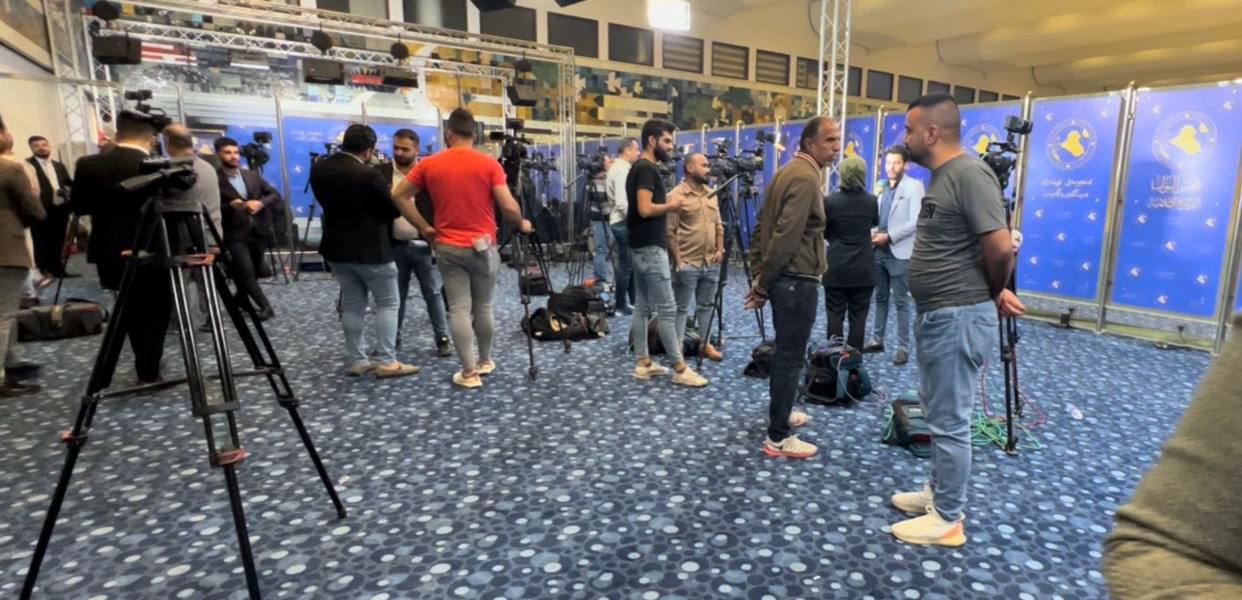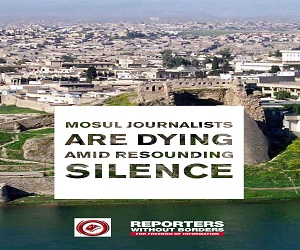
Journalists and media professionals have expressed dissatisfaction with the difficulties they experience when performing their duties in Parliament.
The most recent example is Parliament Speaker Muhammad Al-Halbousi's instruction to restrict journalists formally accredited to cover. parliamentary operations from entering the offices of parliamentary blocs and committees.
JFO conducted interviews with several journalists who specialize in covering the Iraqi Parliament activities to learn about the challenges they face in their media work within the Parliament.
In addition, the Parliament's sessions are montaged before broadcasting, even when they do not include dangerous military or security secrets. The series of decisions by the Parliament's presidency against journalists in the current and past periods threatens to empty their attendance at the Parliament from its usefulness.
"The suffering of the journalist who wants to cover the activities of Parliament begins when they enter the Green Zone, where most journalists are forced to walk for long distances with photographic equipment before arriving at the building", according to a reporter for one of the TV channels who refused to disclose his name for fear of unfair punishments by the parliament presidency.
He continues, "entering the Green Zone with private cars requires a special badge, and there are four sorts of badges, the gray badge, which is meant for the entry of only one person with his car, and the green badge, which allows the holder and four other people to enter."
"The blue and black badges are for MPs, ministers, and high-level officials who enter with their security teams," he added.
He said that "obtaining the badge is not a simple matter, as it goes through many rigorous procedures and often entails paying money; thus, most journalists do not have the badges to access the Green Zone, requiring them to walk considerable distances to approach the building."
"The suffering does not end with reaching the parliament building," he continued, "especially after the Speaker of Parliament, Muhammad Al-Halbousi, canceled the badges for journalists in the previous legislative term," noting that "after canceling the badges, journalists are now forced to take daily or monthly approvals from the media department to enter the parliament."
Despite the media department's cooperation with journalists, he noted that "those approvals are not granted easily, as a request must be submitted to the department for approval one day in advance, unlike what was previously, where the journalist was known through a special badge that allowed him to enter the parliament."
Another journalist from one of the most well-known Iraqi TV channels spoke to JFO, stressing that "most MPs avoid holding press interviews, while the heads of the blocs are arrogant about the press and do not enter the media center except with a press conference."
During a conversation with JFO, another journalist from one of the most well-known Iraqi Tv channels emphasized that "most MPs avoid giving press interviews, while the heads of the blocs are arrogant about the press and do not attend the media center except with a press conference."
He added that "the Parliament Speaker restricted all powers to his hand so that approvals are issued exclusively from his office."
The reporter urged "MPs, especially the new ones, to learn the diplomatic answer and how to respond to journalists' questions," noting that "most of the new MPs consider their statements to journalists are a present or a gift, and their responses are sometimes provocative."
A third journalist, who also requested anonymity, stated, "Parliament Speaker Muhammad Al-Halbousi appears to have an issue with journalists. His actions and orders from the prior and present period have contributed to our limitations...there are no facilities."
JFO tried reaching the director of the Parliament Speaker's office and the Parliament's media department to acquire an explanation for what was said in the journalists' interview but received no answer.
JFO gives the parties and people whose names appear in the report the right to respond, and it is required of them to clarify the mistreatment of journalists.
JFO calls on Parliament Speaker Muhammad Al-Halbousi and his two deputies to evaluate the guidelines and instructions related to journalists' work to make it easier for them to carry out the constitutionally granted right to a free press and cease obstructing and intimidating journalists.






.jpg)









